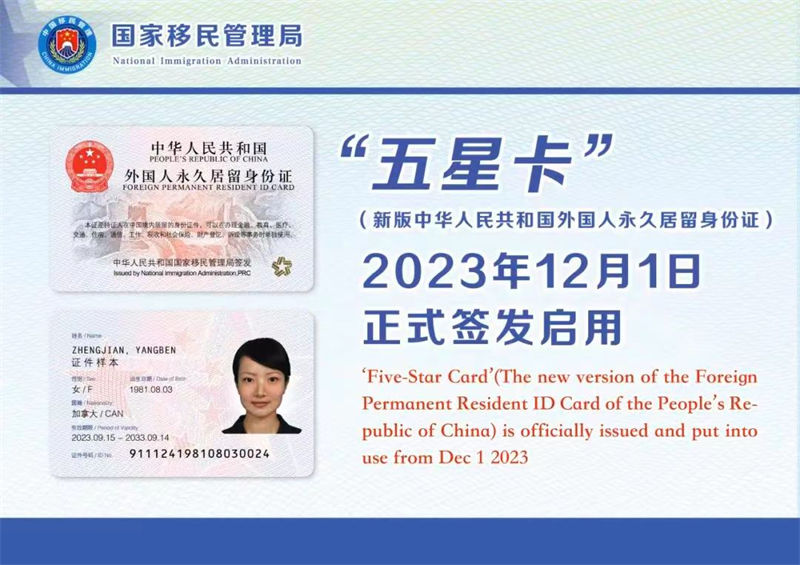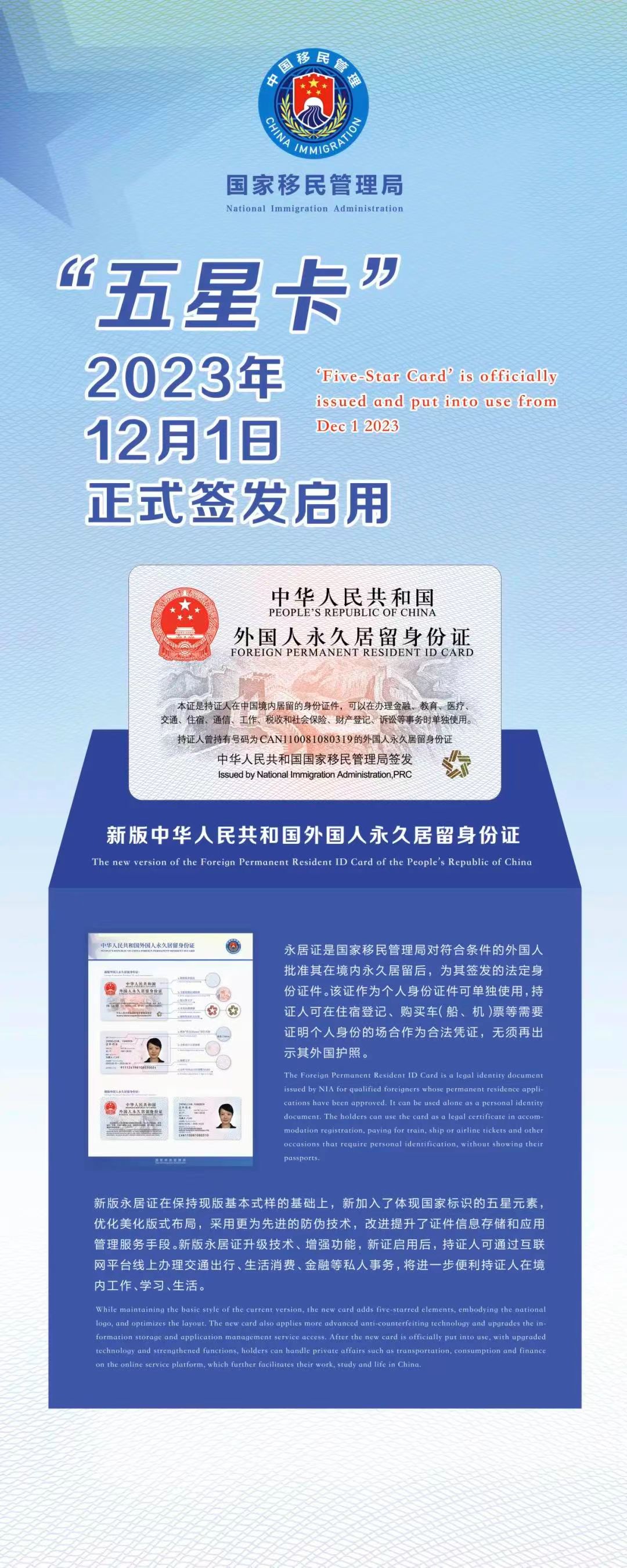Foreigners in China receive new ID cards
By YANG ZEKUNChina DailyUpdated: 2023-12-02 10:21

The new version of China's Foreign Permanent Resident ID Card was officially issued and came into use on Friday, aiming to facilitate the daily life of foreigners in China.
According to the National Immigration Administration, the first batch of 50 foreigners received the card on Friday after qualifying for permanent residence in China. They are from over 20 countries, including the United States, Germany, and the United Kingdom, and have made outstanding contributions to China's social development.
Many permanent resident foreigners also came to inquire about the renewal of their cards at entry and exit administration departments in places such as Beijing, Tianjin, Shanghai and cities in Guangdong province.
Mao Xu, director of the NIA's Foreigners Management Department, said that due to the incorporation of five-starred elements symbolizing the Chinese national flag, the new version of the permanent residence permit is also referred to as the "Five-Star Card".
The NIA has comprehensively improved and upgraded the machine-readable and visually readable areas of the card. It has also perfected its technical specifications, optimized and improved its layout and enhanced its anti-counterfeiting performance, making it more secure, aesthetically pleasing and practical, Mao said.
"This move aims to facilitate the work, study and life of foreign talents in China and serve the country's high-level openness and high-quality development," he said.
The new version of the card has adjusted the document number from the previous 15 digits to 18, with a unique set of numbers assigned to each individual for lifelong identification, he said.
The chip storage technology has also been adjusted, optimizing the way document information is stored to be more compatible, allowing for quick and accurate reading and retrieval of information by widely used identity card reading devices, Mao said.
People can use the new card independently when proving their identity, such as for public, government and internet services. There is no need for them to present their passports again, the NIA said.
Furthermore, holders of the "Five-Star Card" can use it, along with a valid passport, for multiple entry and exit from China without additional visa or residence permit procedures.
When living in China, holders can use the card for various types of transportation, accommodation check-in, and handling financial services such as banking, insurance, securities and futures.
Kirill Solonin, a professor at Renmin University of China in Beijing, was one of the first applicants to get the new ID card on Friday. He praised the design of the five-starred elements and said he had been eager to apply for it for a long time.
"The entire application process is not complicated. I have been engaged in academic research in China for about 10 years, and most of my academic achievements were obtained in China. After obtaining this card, I feel very happy, as if it is recognition from the country," he said.
Solonin said the new card will bring him a lot of convenience, especially in transportation and financial services.
"In the past decade, there have been quite a few policy changes in China's permanent residence policies, making the procedures simpler. We often handle procedures related to immigration documents, and I remember when I joined the university in 2013, the documentation process was complicated, requiring a large stack of materials," he said.
Douglas K. Prescott, head of the Canadian International School of Beijing, said that he travels a lot in China, and the new card will make his travel easier when taking a train, plane or boat, or visiting tourist attractions.
He said the Chinese government has stuck to its commitments to make it easier for foreigners to come and work in the nation.

